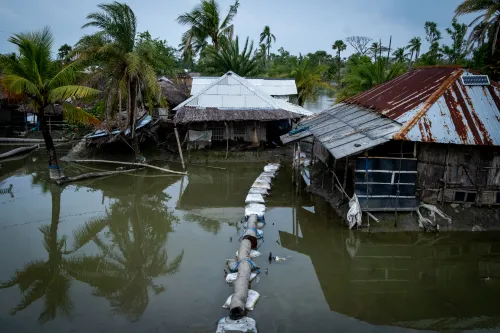The World Health Organisation (WHO) has said that weak health systems in developing countries are threatening their capacity to cope with the effects of climate change which continues to threaten livelihoods.
Speaking at the regional summit on health and climate change for Africa which is taking place in Lilongwe, the capital of Malawi, Ishmael Nyasulu, the WHO representative said that climate change remains the single biggest threat facing humanity at the moment, noting that it has the potential to undermine decades of progress in global health.
“Having responded to multiple climate change health-related events, WHO is aware that without assistance to prepare and respond, weak health systems as is the case in most developing countries will be the least able to cope with effects of climate change on health,” he was quoted as saying.
Read also: Report shows G20 poured more than $1tn on fossil fuel subsidies despite Cop26 pledges
Speaking further, Nyasulu said that the WHO intends to build on its strong involvement in climate and health globally, adding that the organisation is committed to supporting countries in implementing their pledges under the alliance for transformative action on climate and health (ATACH).
On her part, Khumbize Chiponda, who is Malawi’s health minister, said that there is a need to recognise the intersectionality of issues arising from the effects of climate change, including the health sector.
She added that African countries need to build strong collaborative efforts, create strong actions and build a strong united voice as the continent’s position, noting that the effects of climate change are interlinked in all sectors.
Story was adapted from the Guardian.
